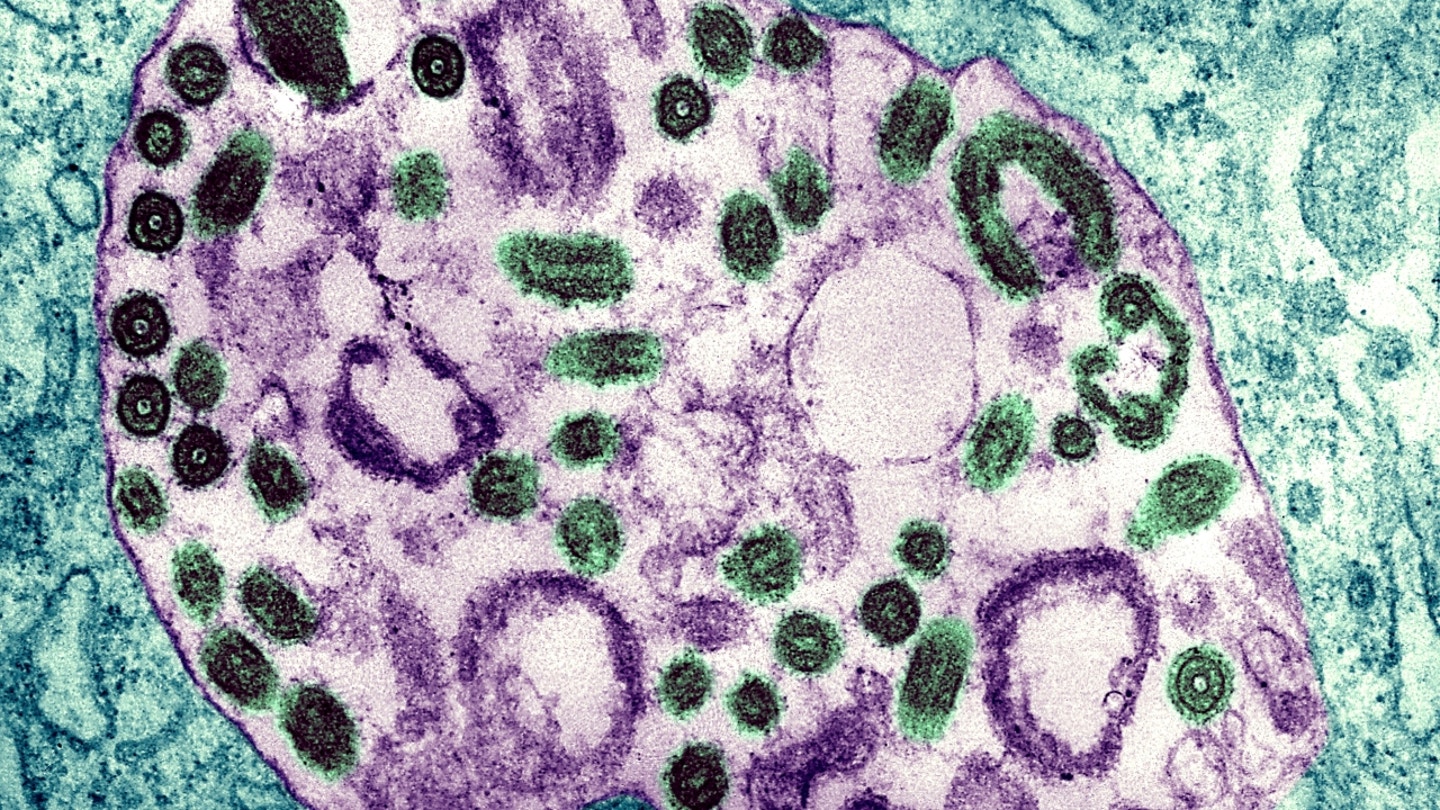Amid reports of a deadly viral outbreak in Central Africa, researchers are reportedly scrambling to develop treatments and vaccines to combat the Marburg virus.
As of Sept. 30, 2024, the country of Rwanda — which is bordered by Uganda, Tanzania, Burundi and the Democratic Republic of the Congo — has reported 27 cases of the virus and nine subsequent deaths, according to the Centers for Disease Control and Prevention (CDC).
Most of the cases have affected health care workers at two health facilities in the city of Kigali, the same source stated.
CDC WARNS US PUBLIC HEALTH OFFICIALS OF EBOLA-LIKE DISEASE
The patients are being cared for in hospitals, as noted by the World Health Organization (WHO) on Sept. 29.
The virus is spread by the Egyptian fruit bat (Egyptian rousette bat), which is found in both Equatorial Guinea and Tanzania, per the CDC. (Getty Images)
“Contact tracing is underway, with 300 contacts under follow-up,” WHO stated.
This is the first time the Marburg virus has been reported in Rwanda.
What is the Marburg virus?
Similar to Ebola, Marburg is a “rare but severe hemorrhagic fever” that can cause “serious illness and death,” with a 20% to 90% fatality rate.
There have not been any confirmed cases in the United States, and the CDC says the risk of infection in the country is low.
MARBURG VIRUS ‘WILL NOT BECOME THE NEXT PANDEMIC’ BUT SHOULD BE MONITORED, DOCTOR SAYS
“It is highly fatal in humans and there is no treatment — and unlike Ebola, there is no vaccine,” Dr. Marc Siegel, senior medical analyst for Fox News and clinical professor of medicine at NYU Langone Medical Center, told Fox News Digital.
“It is very similar to Ebola in that it causes hemorrhagic fever,” he added.
Marburg is “difficult to catch,” Siegel noted, as it requires close contact with bodily secretions.

This colorized scanning electron micrograph captured at the NIAID Integrated Research Facility in Fort Detrick, Maryland, shows Marburg virus particles. (Getty Images)
The virus is spread by the Egyptian fruit bat (Egyptian rousette bat), which is found in both Equatorial Guinea and Tanzania, per the CDC.
An infected human can transmit the disease to other humans through exchange of bodily fluids and contaminated objects.
Marburg is a “rare but severe” hemorrhagic fever with a 20% to 90% fatality rate.
Marburg isn’t new — it was first discovered in 1967, when outbreaks happened in labs in Marburg and Frankfurt (both in Germany) and in Serbia (formerly Belgrade, Yugoslavia).
In 2023, there were outbreaks of the virus in Tanzania (resulting in five deaths) and Equatorial Guineau (12 deaths).
Symptoms, treatment and prevention
Initial signs and symptoms of the virus include fever, chills, a rash with flat and raised bumps, muscle aches, headache, sore throat, chest pain, nausea, vomiting and diarrhea, according to the CDC.
Advanced stages of the disease can be marked by delirium, liver failure, shock, hemorrhagic bleeding and organ failure.

Most of the cases have affected health care workers at two health facilities in the city of Kigali, the CDC stated. (iStock)
Symptoms typically emerge within two to 21 days of infection.
“In fatal cases, death occurs most often between eight and nine days after symptom onset, usually preceded by severe blood loss and shock,” WHO stated in its health alert.
TICK-BORNE WETLAND VIRUS, NEWLY DISCOVERED IN CHINA, COULD CAUSE DAMAGE TO BRAIN, RESEARCHERS SAY
There are currently no treatments for Marburg other than “supportive care,” the CDC noted.
Patients should be under the care of a doctor who can monitor oxygen status and blood pressure, provide intravenous fluids, and treat any secondary infections, the agency stated.
CLICK HERE TO GET THE FOX NEWS APP
Rest and hydration are also key to recovery.
To prevent outbreaks, the CDC recommends avoiding contact with blood and bodily fluids of sick people and those who have recovered from the virus until tests confirm the complete absence of the virus.

The Marburg virus, first recognized in 1967, causes a severe type of hemorrhagic fever that affects humans and non-human primates. (BSIP/UIG Via Getty Images)
People should also refrain from touching items that may have been contaminated with an infected person’s bodily fluids, the CDC cautioned.
No vaccine is currently available for Marburg, although “some candidate vaccines are currently under development,” according to WHO.
CLICK HERE TO SIGN UP FOR OUR HEALTH NEWSLETTER
“There are promising vaccines and therapeutic candidates for MVD, but these must be proven in clinical trials,” the organization added.
For more Health articles, visit www.foxnews.com/health
“WHO assesses the risk of this outbreak as very high at the national level, high at the regional level, and low at the global level. Investigations are ongoing to determine the full extent of the outbreak and this risk assessment will be updated as more information is received.”
